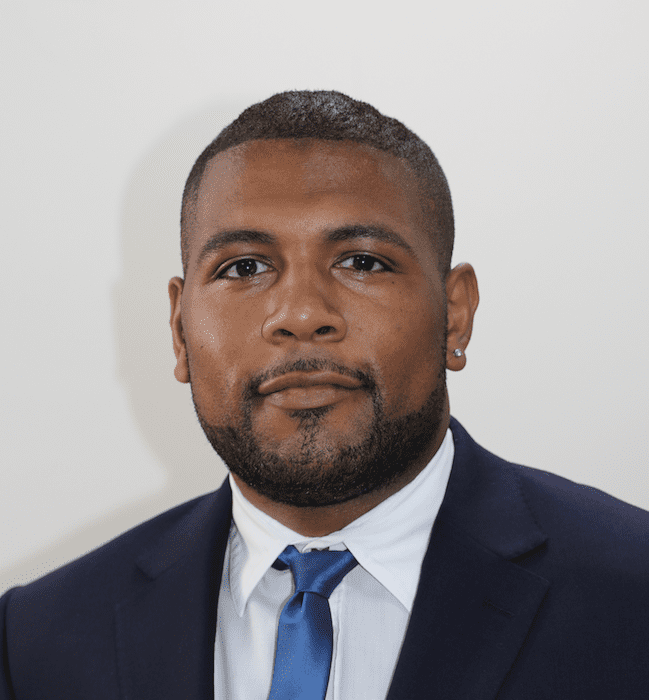Blake Ellis, paraplanner for Simpson Financial Services, talked to Rob Kingsbury about why he feels cash flow modelling is core to all clients’ plans and the benefits of being the sole paraplanner in a small firm.
For Blake Ellis, paraplanner with Leamington Spa-based Simpson Financial Services, cashflow modelling is key to delivering a great service for clients, because of the power it has to graphically represent an individual’s finances, both now and in the future.
In fact, the small, general IFA, headed up by director Rob Simpson, believes cash flow is so important to people understanding their financial position that it produces one for every financial advice client*.
The firm uses Voyant. “We build in as much as we can into the cash flow model, inflation, charges, market corrections and losses every 10 years, and so on, so that we can give the client as accurate a picture as we can,” Blake explains. “Obviously, you have to make assumptions and it can only ever be an estimation but it really helps clients to see their situation and where they might be in the future.
“We provide a cashflow for every client because that’s the only way really that a client can see if they are on the right financial journey. This is particularly so for those approaching retirement when things change and they may need to reassess their financial plan.”
He says they find it useful particularly for illustrating the client’s immediate inheritance tax position and then where they might be in later in life.
“A cashflow model helps bring things home for the client. I’ll do a base plan to show their existing journey, where nothing changes at all. Then I’ll show them what they could do and how it might affect them: what would happen if they saved more money, or if they spent more.
“When you give people easy-to-see information about how much they have and where it’s coming from and what it would take for them to use up all their pension fund by the time they die, it sometimes shows people that they can spend more than they thought they could, or afford to give some money away. It shows the client what will work and what won’t and gives them more confidence that what they are doing is right for them.
It can be an eye opener.
“Clients love it. If you give clients a load of numbers in an excel spreadsheet it means nothing, whereas a well presented cash flow model is far easier to understand and they get it.”
Sole paraplanner
The only paraplanner in the firm, Blake primarily works for Rob, who is the firm’s pensions specialist, hence pensions work tends to dominate his day.
His role is non-client facing, although he does speak to clients on the phone. He undertakes “the number crunching”, cash flow modelling, appropriate pension transfer analysis, switch reports, general research into providers and products.
“Rob will go to see the client then he will come back with the fact find and we will discuss what the client is looking to do, and the soft facts, and I’ll take it from there.
“The administrators will go out for the information we need from providers. Once that’s all come in, I’ll do any follow ups and put it all into Intelligent Office. Then, for example, I’ll do the research on the client’s existing pension scheme and do the appropriate transfer value analysis. We’ll have done a risk profile (we use eValue) and the capacity for loss assessment. Then I’ll do the quotes and any switch reports that are required, put together a cashflow model and the suitability letter.
Blake also sits on the firm’s investment committee. “We meet every quarter but, of course, we are talking about funds all the time. In the meetings we review our model portfolios, which are risk rated 2-10, as well as our ethical portfolio.
“We don’t chop and change funds. Every fund is carefully chosen and has a role and we expect that some will perform better than others at certain points in the cycle.
Funds are changed only against a set criteria – which stipulate when a fund is eligible to be included or should be removed from a portfolio. “We’ll make switches only where necessary. My role is then to research alternative options for the outgoing fund in the same sector.”
Working for a small company
Blake studied business at college, combined with the Certificate for Financial Studies course from the Institute of Financial Services (IFS). “It was the first time I had come across financial services as a career choice. The IFS course went well with the business course and I just found it was a good fit for me,” he says.
At first he thought he would become a financial adviser but then he discovered paraplanning. “What I liked about it was the research and the analytical side. The fact that it is non client facing and is number crunching and the nitty-gritty of financial advice, rather than the sales side. It’s investigative and that’s the part I really enjoy.”
Level 4 qualified and targeting chartered, Blake had jobs with a high street bank and a property firm before his first paraplanning role with wealth management company. “It was mainly investment and inheritance tax based work and I learned a lot there,” he says. However, it was when he joined Simpson Financial Services in February 2016 that he found his niche.
Blake says he likes the small firm environment. “In a small company you can have more responsibility, your voice is heard a lot more and to a degree you’re more valuable to the firm than if you were one of many. You’re not just a number and you know everyone on a more personal level. And I’ve been lucky, as a company it’s very friendly and they’re a great bunch of people.”
Industry change
Asked if there was one thing he’d like to change about the industry, he says: “I’d like to see the way financial planning is perceived to better reflect what we do for clients. I’d like us to be seen on the same level as accountants and solicitors – as a profession.
“I think that will be down to the way we communicate what we do, both within the industry and to potential clients. As a profession we need to be more vocal about the positive effect we have on people’s lives.”
Similarly, while he believes paraplanning is growing and being recognised more for the value it provides to firms and clients, “what we need to do as paraplanners is promote it more,” he says.
“For adviser firms, a paraplanner brings another pair of eyes to a client’s circumstances, a different outlook. I think that is important to get the best in any industry. It can lead to discussion and debate and the potential for more solutions to a client’s situation.
“I think paraplanning will help turn financial planning into a profession. A lot of the paraplanners I meet want to achieve the best outcome for the client. Even if that is under the radar it is going to bring a greater professionalism to the industry.”
(* The firm also has a mortgage side for which it doesn’t produce reports.)




























